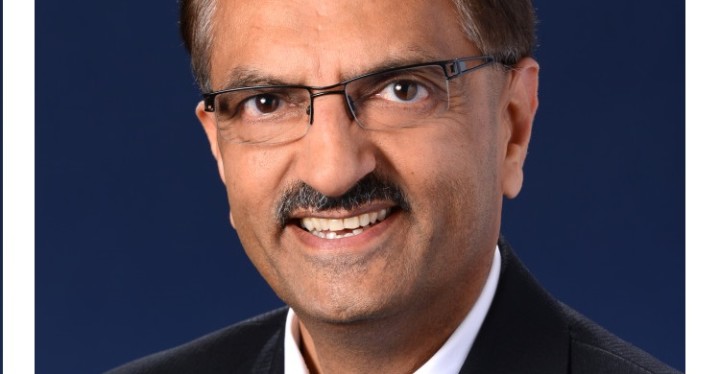Ethical Standards for AI/AS Development
What does it mean to Advance Technology for Humanity?
While this is an engaging and purposeful tagline for IEEE, the little word “for” has–again and again–to be given meaning and put in action. In the context of “Artificial Intelligence” (AI) the critical question is, “what do we wish to prioritize in the creation of technology in the algorithmic age?” Then we need to act to get it done. As scientists and engineers we have a long and honorable tradition of upholding excellence in what we build.
However, tradition is not sufficient anymore in the age of intelligent machines–the emerging challenges we face also demand a critical and innovative approach towards the process of scientific and technological inquiry itself. Simply doing, and then later thinking about the potentially negative sides of what we have done, may take humanity to places where nobody wants to go, at least consciously.
In the case of AI, it is only by defining the deep ethical considerations we wish to address as a society before we create technology that we can best align with people’s values who use it and avoid negative unintended consequences.
To help in this process of societal definition, the IEEE Standards Association (IEEE-SA) launched The IEEE Global Initiative for Ethical Considerations in Artificial Intelligence and Autonomous Systems (AI/AS) in April of 2016. We did this for two key reasons:
- To move beyond both the fear and the uncritical admiration regarding autonomous and intelligent technologies.
- To show that aligning technology with ethical values will help advance innovation with these new tools while diminishing fear in the process.
To pragmatically address specific ethical issues in AI/AS, the IEEE Global Initiative on AI Ethics was tasked with two primary deliverables. The first was the creation of Ethically Aligned Design: A Vision for Prioritizing Human Wellbeing with Artificial Intelligence and Autonomous Systems. Given the sensitive and complex nature of the matter, we chose an iterative approach. The first version was created by over 100 AI/Ethics thought leaders from the IEEE Global Initiative and contains over 80 pragmatic Issues and Candidate Recommendations for technologists to use in their work today to create a positive future. It was published as an explicit open call for opinions and feedback via our submission guidelines process, to help inform the creation of the second version.
Along with creating and evolving Ethically Aligned Design, members of the IEEE Global Initiative are encouraged as their second deliverable to recommend standardization projects to IEEE-SA based on their work. Here are titles for each of these standardization projects, and more information is available via the links included. Along with the projects listed below, the IEEE Global Initiative recently submitted three more standardization ideas for consideration:
- IEEE P7000™: Model Process for Addressing Ethical Concerns During System Design (Working Group already in process)
- IEEE P7001™: Transparency of Autonomous Systems (Working Group already in process)
- IEEE P7002™: Data Privacy Process (Working Group already in process)
- IEEE P7003™: Algorithmic Bias Considerations (Project has been approved as a Working Group. More information will be available on The IEEE Global Initiative’s website soon.)
From what we have been told, IEEE P7000™ is the first Standard in the history of IEEE that is directly focused on the implementation of applied ethical methodologies to technology. To be clear, this is not to infer that engineers and technologists have not always focused on prioritizing sound ethical practices in the creation of their work. Likewise, IEEE has had a professional code of ethics guiding its work and membership for decades.
But as the purpose of the IEEE Global Initiative states, our goal is to ensure every technologist is educated, trained, and empowered to explicitly prioritize ethical considerations in the design and development of autonomous and intelligent systems. By this we mean that along with a code of ethics providing direction for member behavior, technologists in the algorithmic era need to use methodologies that provide more rigorous due diligence regarding the values of stakeholders and end users than they may be using today. Examples of these methodologies along these lines include Value Sensitive Design and Responsible Research and Innovation (RRI). As the RRI Tools website notes, this means, “involving society in science and innovation ‘very upstream’ in the processes of R&I to align its outcomes with the values of society.”
By creating the IEEE P7000™ series of Standards based on Ethically Aligned Design, our goal is to institutionalize the rigors of this “upstream analysis” to further aid the scientists and engineers involved in the creation of the intelligent, autonomous, and other emerging technologies driving our human future.
The launch of the IEEE Global Initiative and the subsequent development of the IEEE P7000™ family of Standards are pushing the boundaries of the art of consensus building into key facets of the AI/AS ecosystem. These activities contribute to the IEEE TechEthics™ program, which is a broader effort being launched at IEEE to foster an open, broad, and inclusive conversation about ethics in technology. It is because of these efforts of the entire organization to prioritize ethics that we can collectively create a societal standard for our future that truly advances technology for humanity, and for a healthy and innovative future.
Konstantinos Karachalios is an internationally recognized leader within the standards development and intellectual property communities and has extensive expertise in public policy, strategic planning, and the not-for-profit sector. His leadership efforts played a crucial role in the successful international cooperation between Germany and France in the areas of coordinated research and scenario simulation pertaining to large-scale nuclear accidents.
Following the success of these cooperative international endeavors, he joined the European Patent Office (EPO). Among the highlights of his career within the EPO are his creation and leadership of the EPO’s International Academy, the Department of Technical Assistance to the Middle East and Africa, and the Bureau for Public Policy Issues, and his guidance and insights as the EPO’s envoy to a number of United Nations organizations. As a member of EPO’s core taskforce for the “Scenarios for the Future” project, Konstantinos contributed to repositioning the techno-political stakes, reframing the way in which they are debated in the global arena, and initiating and coordinating strategic responses to the challenges raised by those discussions.
Konstantinos earned his Ph.D. in Energy Engineering (Nuclear Reactor Safety) and his master’s degree in Mechanical Engineering for the University of Stuttgart.




